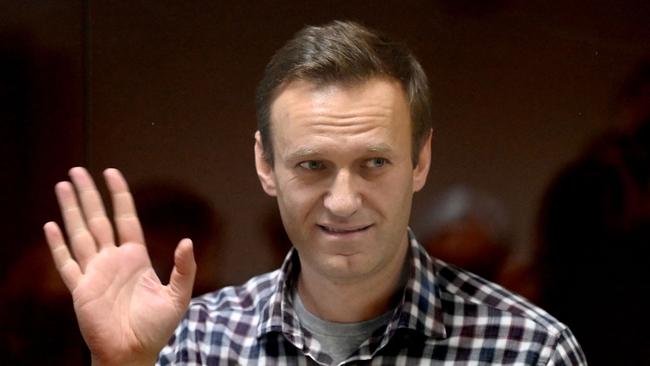Navalny sent to penal colony where inmates ‘disappear’
The Kremlin critic has been sent to a penal colony known for its tough regime and “psychological methods” used against inmates.

Alexei Navalny has been sent to a penal colony east of Moscow known for its tough regime and “psychological methods” used against inmates.
Guards took the Russian opposition leader to the IK-2 correctional facility in Pokrov, 100km from the capital, to start a 2½ year sentence on a charge that he says was fabricated.
Mr Navalny, 44, disappeared from the Matrosskaya Tishina detention centre in Moscow on Thursday.
The director of the prison service said that his etapirovaniye had begun — a process reminiscent of the gulag by which recently convicted people are delivered to their place of confinement without the knowledge of lawyers or relatives.
Ruslan Vakhapov, a prisoners’ rights activist, said that according to his sources Mr Navalny was already at IK-2 and the news had “spread among inmates”. They were surprised that Mr Navalny had not been hit, Mr Vakhapov told Open Media, because new arrivals could normally expect to be dealt blows as they left the prison van. “Inmates don’t like the unknown and not all of them are happy with Navalny arriving. Their life inside was just sorting itself out and now there could be a turning of the screws,” he added.
Western governments called for Mr Navalny’s release after he was convicted last month of violating the terms of a suspended sentence over a dubious fraud conviction. Mr Navalny had argued that he had not been able to report to the police because he was recuperating in Germany from the nerve-agent attack that almost killed him last year.
Konstantin Kotov, 36, an opposition activist, was released in December after spending a year and a half in IK-2 for breaking rules on public gatherings. He said the colony was strict and an inmate sent there “just disappears”. “The administration completely controls the convicts: you can’t do anything which is not in the daily schedule,” he told the Dozhd television channel.
“And if you try to stand up for your rights then you will get written warnings, as it was in my case. Other inmates were forbidden to talk to me, as a method of psychological pressure. They could think up something similar for Alexei.”
Inmates at IK-2 live in two-storey barracks and work in a sewing workshop, a wood-processing unit and a paint shop.
THE TIMES



To join the conversation, please log in. Don't have an account? Register
Join the conversation, you are commenting as Logout